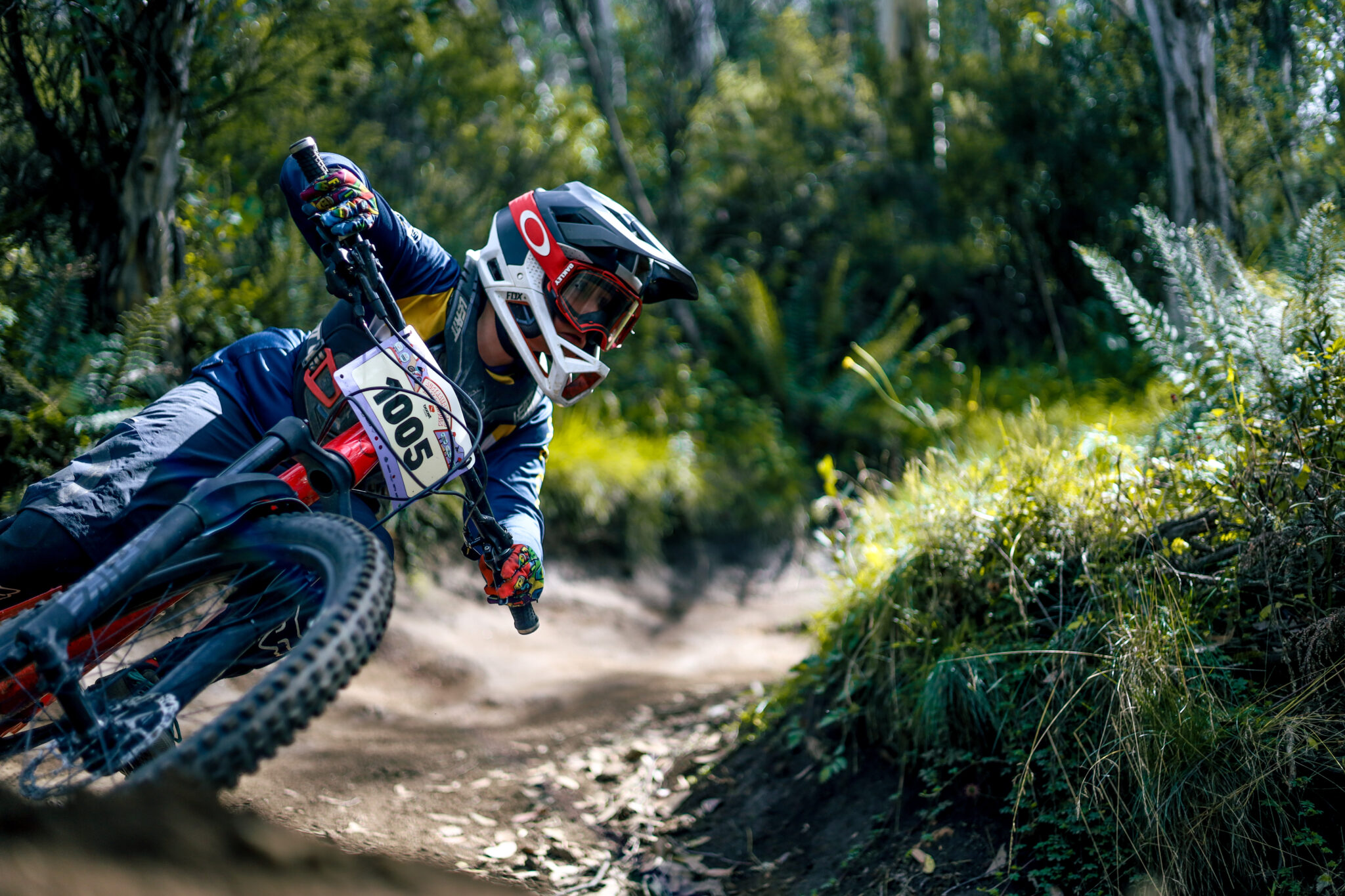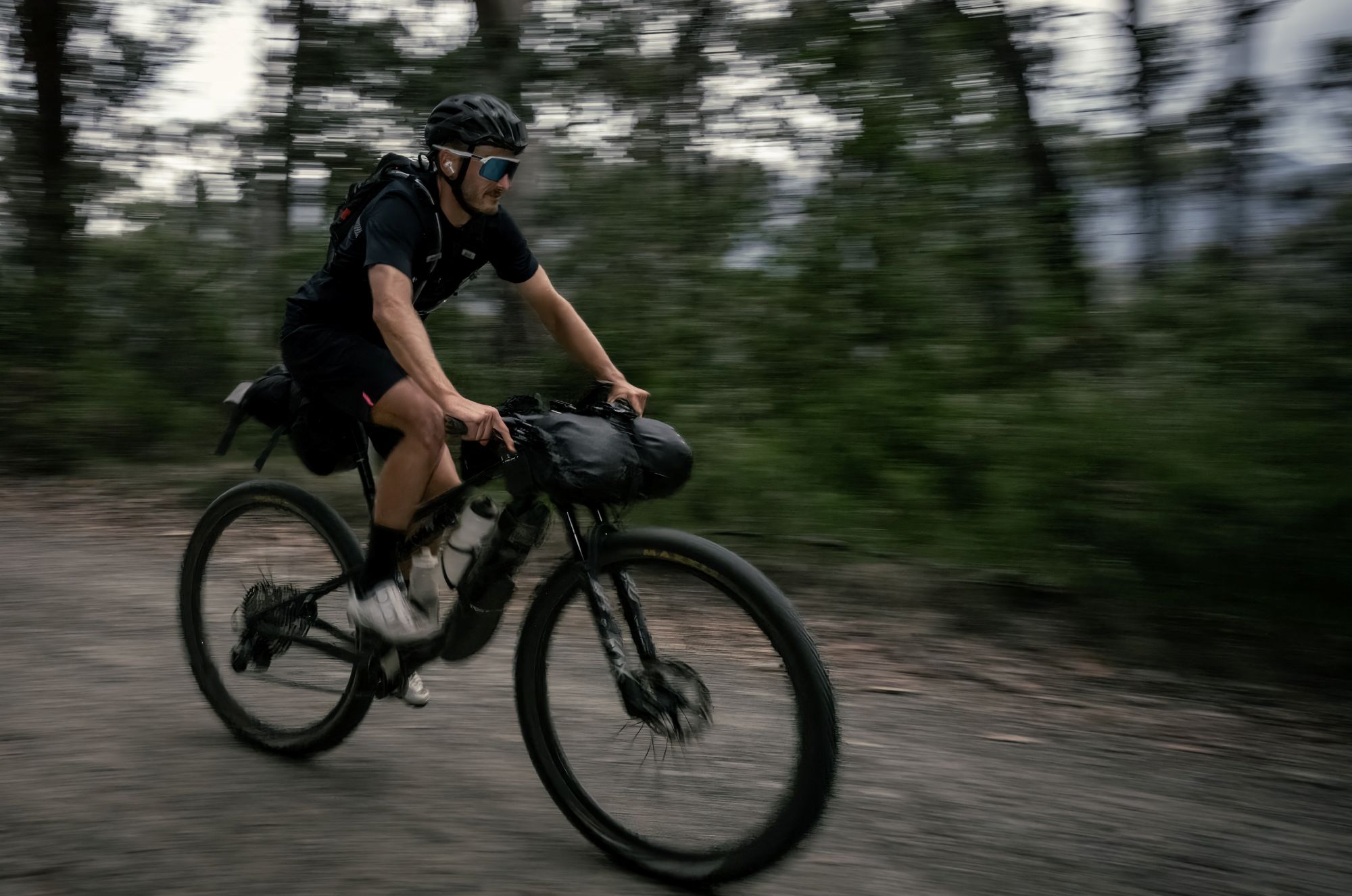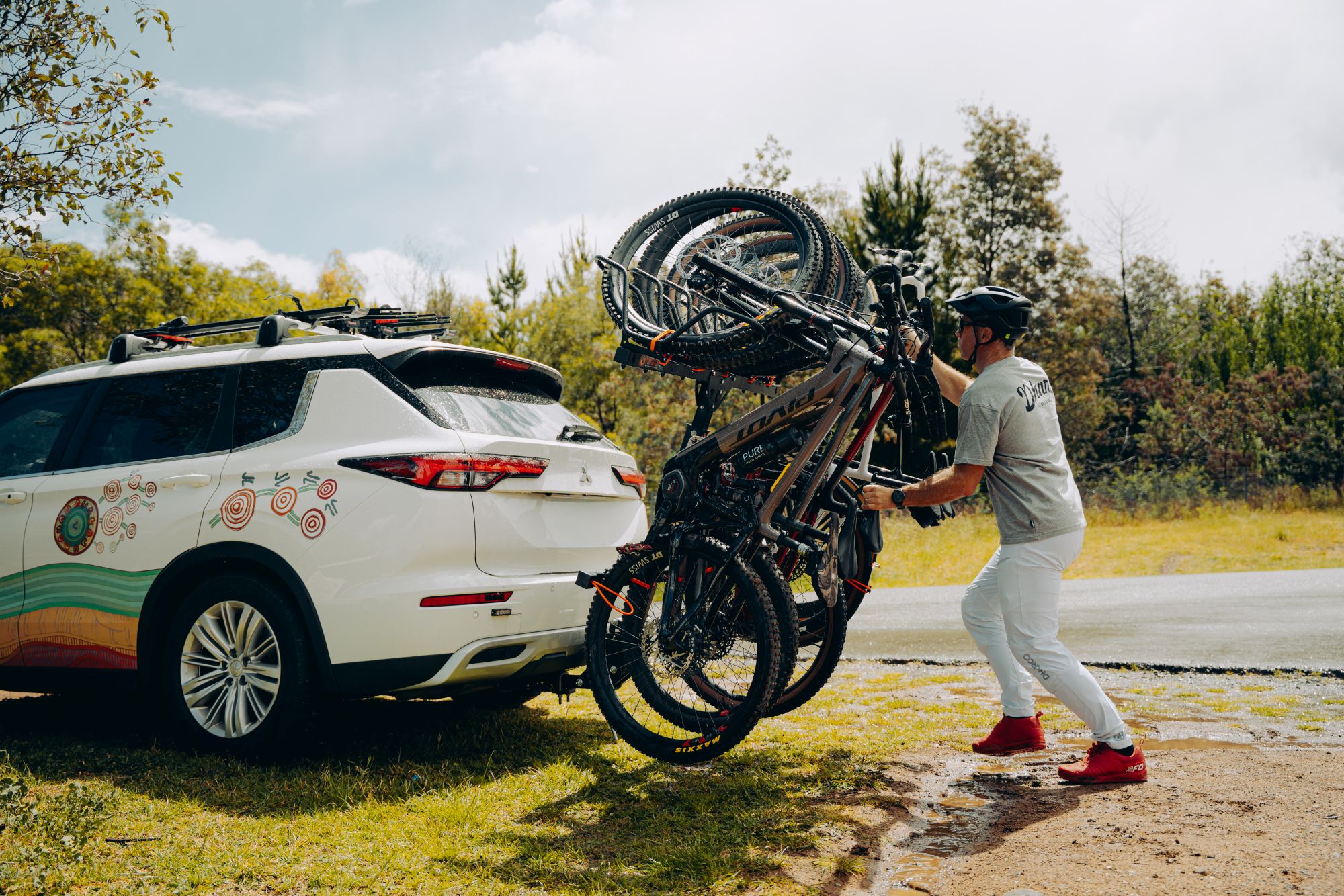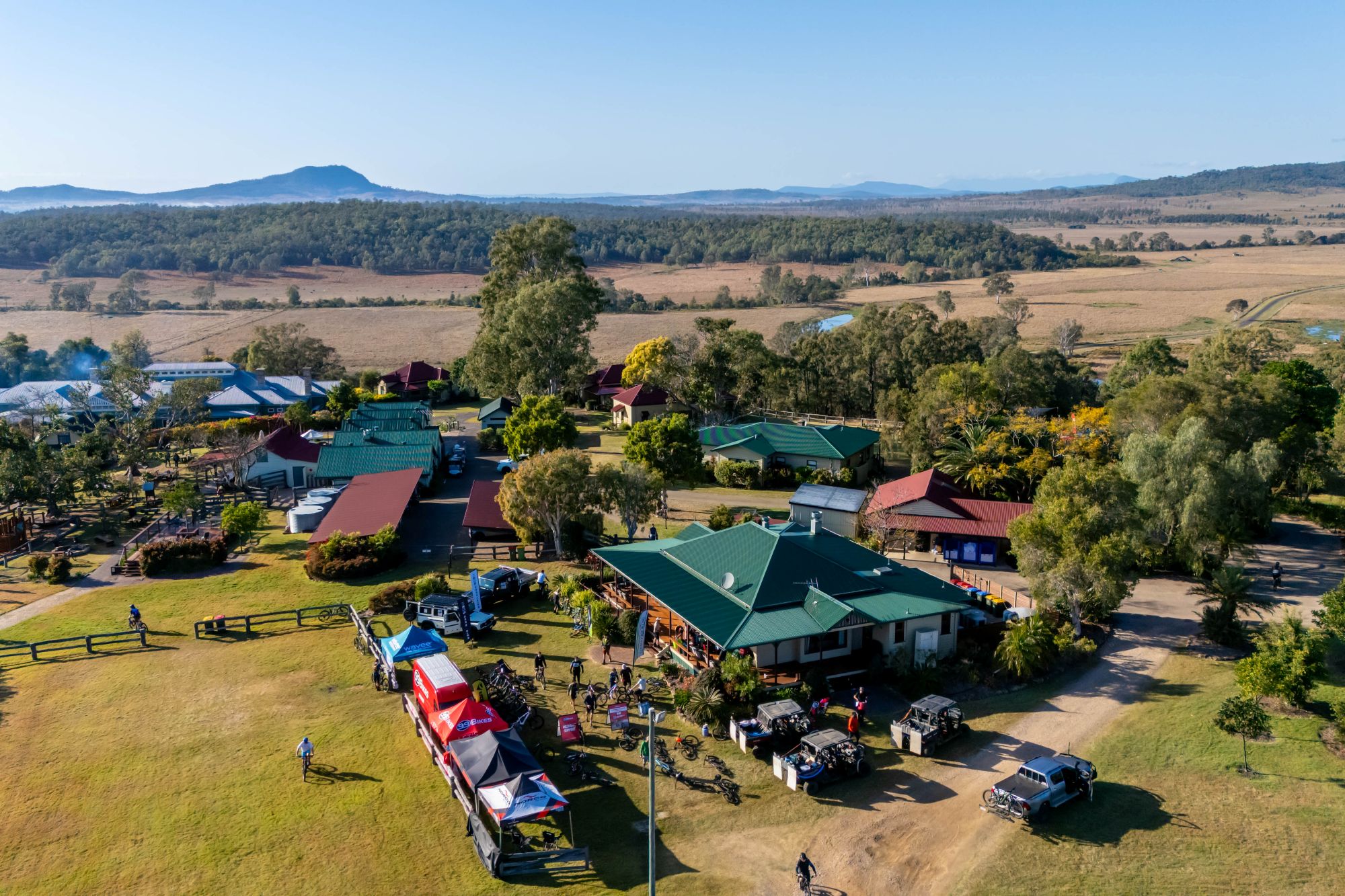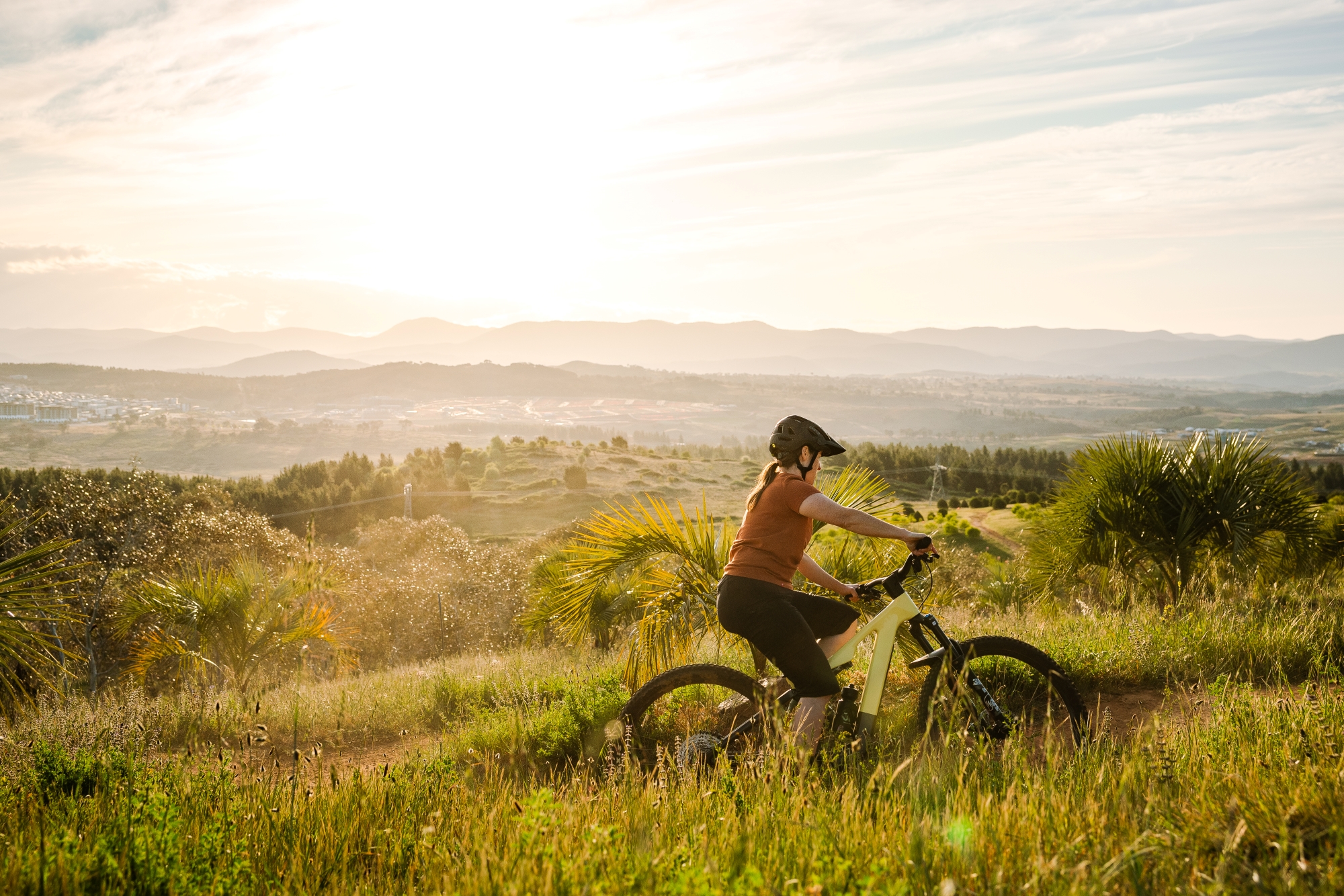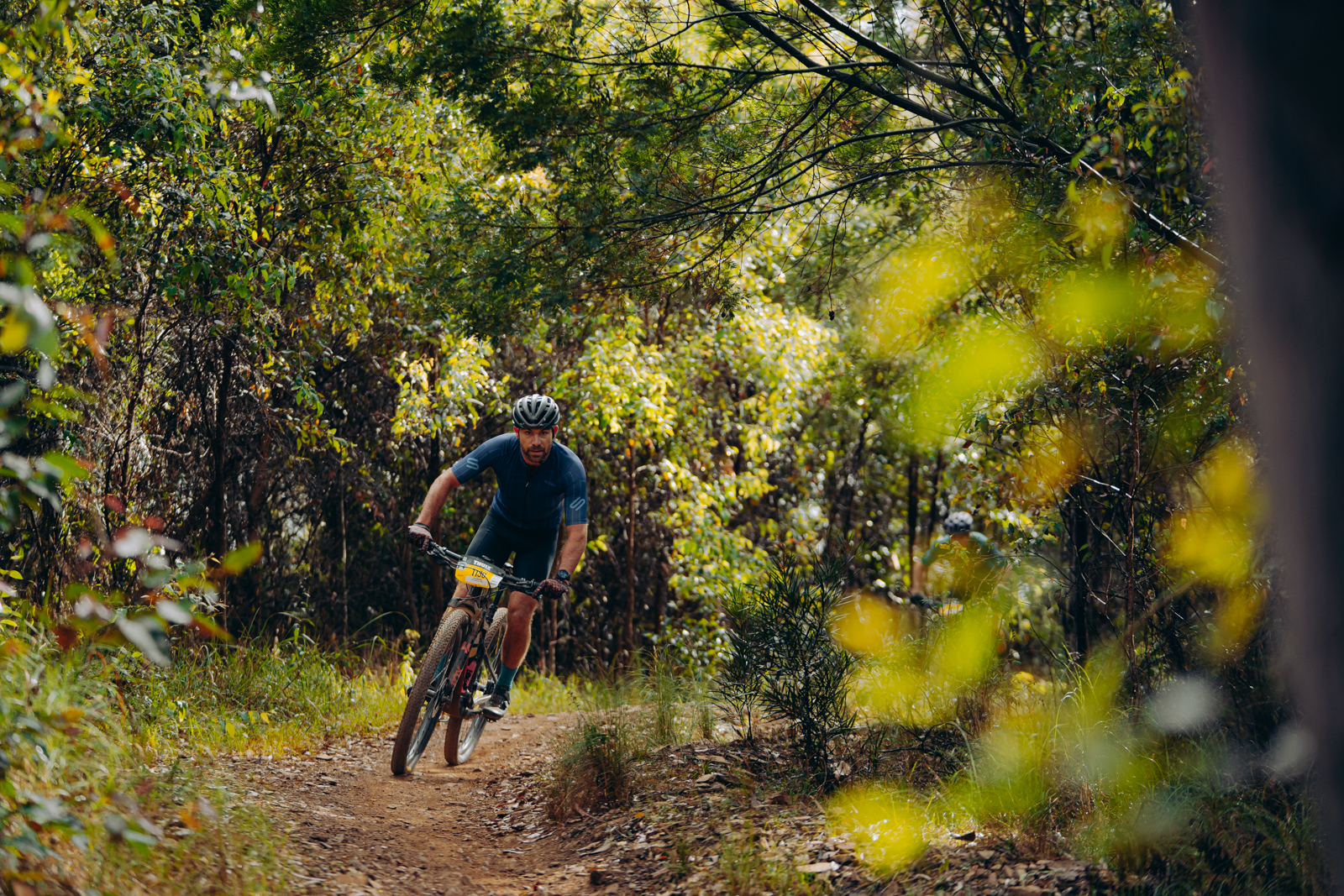In November 2021, AMB investigated the rise of mountain biking school programs for kids in Australia. In the few short years since then, it feels like mountain biking has really become a part of the mainstream sporting fabric within Australia. With more kids hitting trails on bikes than ever before, we wondered how mountain biking at school has changed in that time.
What we found is a new standard of school sport.
While donning their school sports uniforms, kids across Australia are getting out on the trails to hone their technique, build fitness and develop life skills. In Brisbane, Queensland, multiple schools offer mountain biking as a school sport thanks to the coaching outfit Flow Mountain Bike Coaching. In Coffs Harbour, NSW, a group of enthusiastic teachers have got mountain biking onto the timetable at one school. At Snowy Mountains Grammar School, in Jindabyne, NSW, mountain biking is offered to students in three out of four terms.
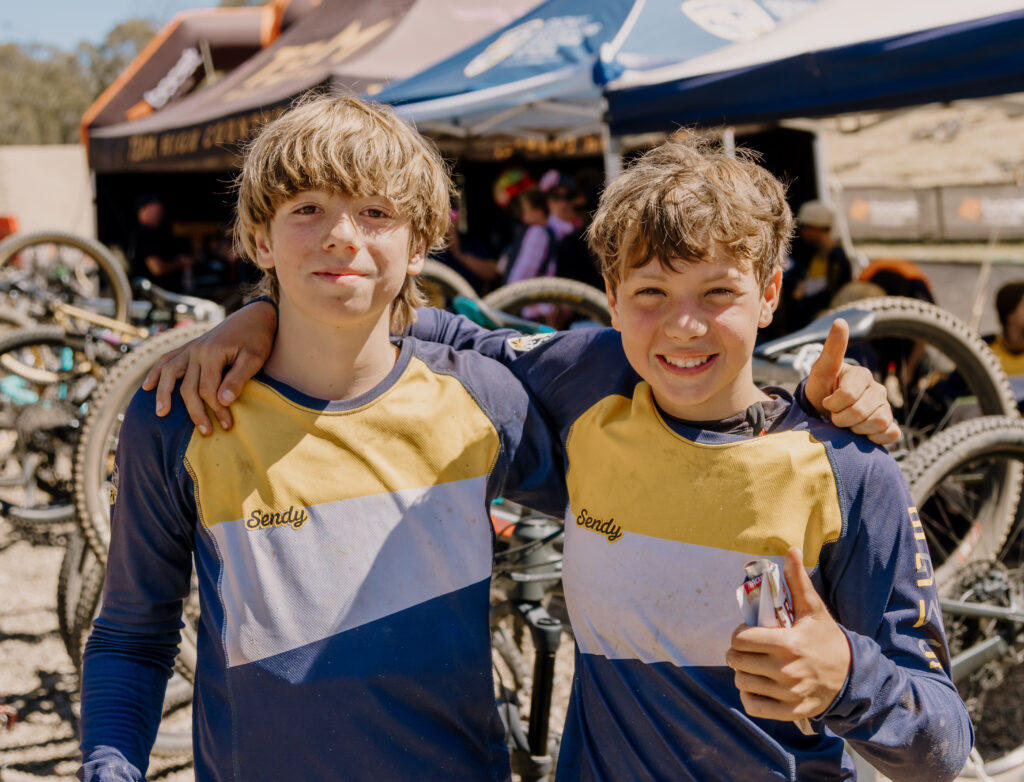
We spoke to the people involved to gauge the progress of mountain biking as a school sport, why they believe it’s so popular, and some of the limitations and difficulties they needed to overcome as mountain biking continues to explode in popularity nationwide.
South East Queensland: On-site trails and extracurricular options
In South East Queensland’s leafy eastern suburbs, students across eight schools are mountain biking as a school sport thanks to Flow MTB Coaching (FMTBC). Founder and owner Mark Watts and his team of five coaches coach up to 100 hours per week on the trails, for students ranging from grade one to year 12.
At Moreton Bay College, FMTBC facilitates mountain biking coaching five days a week as an after-school sport. The school is lucky enough to have the land and funds to build its trails on campus, so students can get changed, jump on their bikes, and be at the 1.5km trail within moments of the afternoon bell ringing. While the trail is maintained professionally, FMTBC teaches trail care, standard skill development, and fitness.
Redlands College offers mountain biking as an afternoon sport to students in Years 7 to 12. Proximity to the dirt means that FMTBC can ride with students from school to the nearby local trail network where they work on skills, fitness and competitive skills. Gumdale State School offers mountain biking as an elective for students in Years 4 to 6. Those students leverage Moreton Bay College’s campus, where they learn and develop basic bike skills and, hopefully, develop a lifelong appreciation for riding.
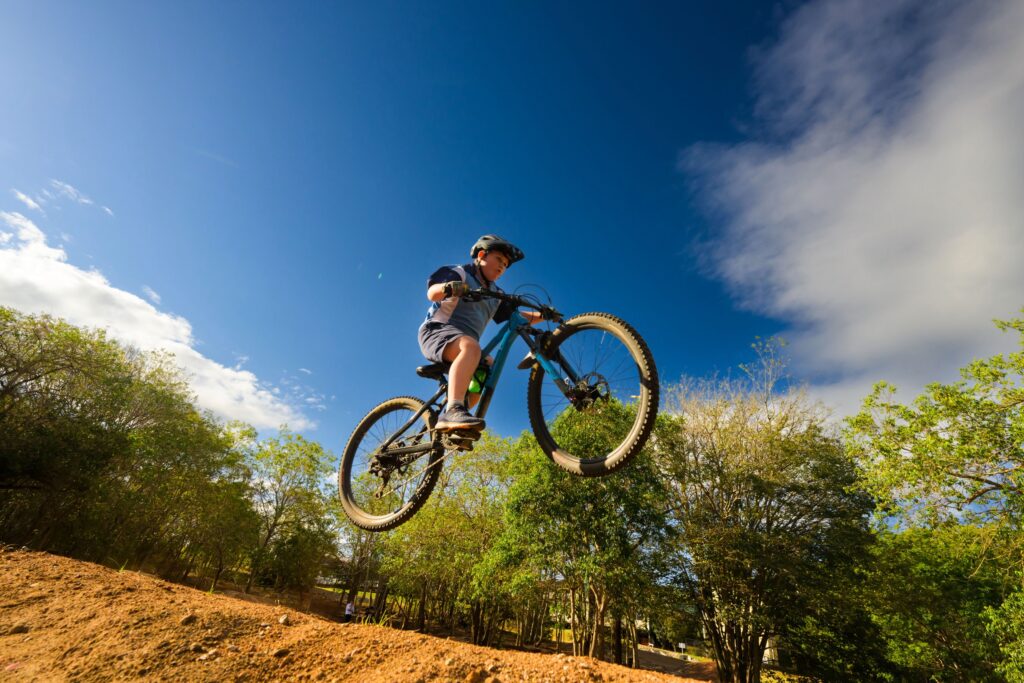
The other schools (Ambrose Treacy, Iona College, Padua, Hillcrest Christian College and Clayfield College) offer mountain biking as an extracurricular sport on weekends, with students riding a variety of trail networks from Mount Cotton and Nerang to the Sunshine Coast and Toowoomba. Though the kids rely on their parents to get them to the trails, Mark says students and their folks are keen to get out on bikes, so school sports on a weekend are not a deterrent.
“These programs happen on Sundays, so they don’t clash with Saturday school sports and parents have to get students to the trails,” Mark says, “they’re all very engaged and very keen.”
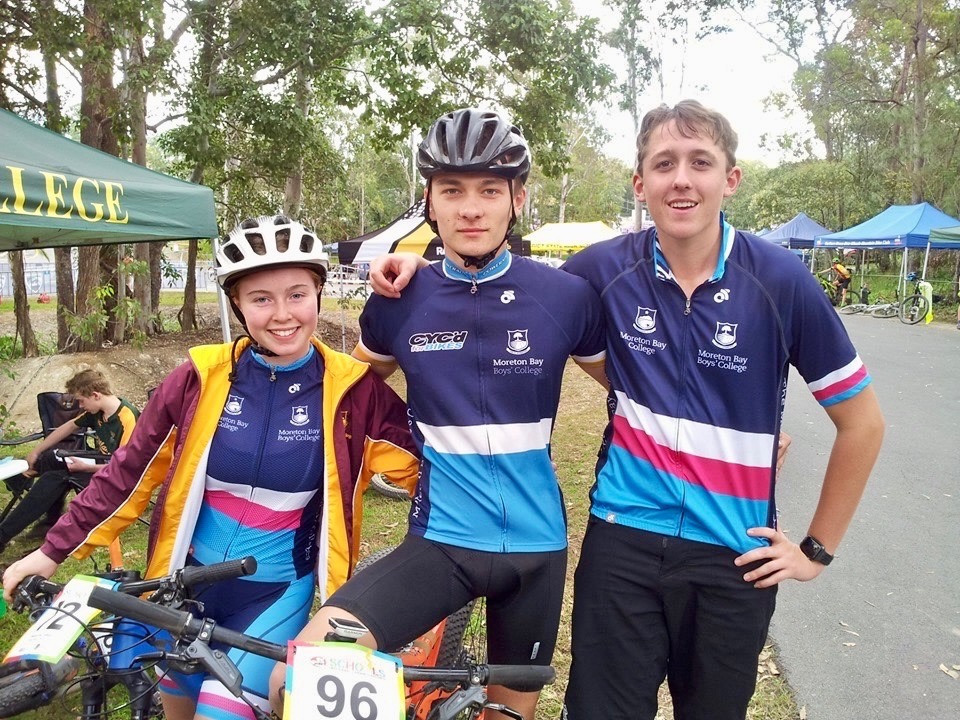
In his eight or so years of operating, Mark has gone from coaching at a single school to eight schools. Part of that growth is the culture associated with mountain biking and FMTBC.
“Parents are keen on the culture we put across,” Mark expands, “It’s allowing kids to take risks within a safe environment, acknowledging that other people may do things better than you, that you’re working on your skills, but that you’re supporting each other.”
It’s allowing kids to take risks within a safe environment, acknowledging that other people may do things better than you, that you’re working on your skills, but that you’re supporting each other.
“Ultimately, everyone feels like they have a space; they belong, and there’s an opportunity to progress.”
That progression is on display when competing at Rocky Trail Entertainment Academy events, where students can race on different styles of trail and see how they stack up against their peers.
“Up to forty schools – hundreds of students – turn up to the Rocky Trail Academy events,” Mark says. “It’s where they get their opportunity to compete, and they can do each stage up to five times so there isn’t the pressure of only getting one perfect race run.”
To Mark, mountain biking in schools is also about teaching kids important personal skills like responsibility, in addition to race skills like competition and peer support.
“We tell kids ‘you’re responsible for bringing your water and ensuring you have spares and food. You can ask for help, but you must ensure it happens.”
Another life skill Mark is keen on imparting is that sport can be more than competition.
“Often, school sport is centred around competition. But [mountain biking] could be something you do for the rest of your life. It’s an opportunity to connect with people and the community. If you want to compete hard, you can do that, but if you enjoy doing something social, in natural environments, that’s available too.”
The Coffs Coast solution to Mountain Biking in Schools: Enthusiasm and Passion driving the program
At Bishop Druitt College (BDC), what started as a conversation between one teacher and parents about getting students to National Mountain Bike Interschools in Thredbo in 2022 has grown into a program providing foundational and racing skills and development, as well as the opportunity for students to experience and connect with nature.
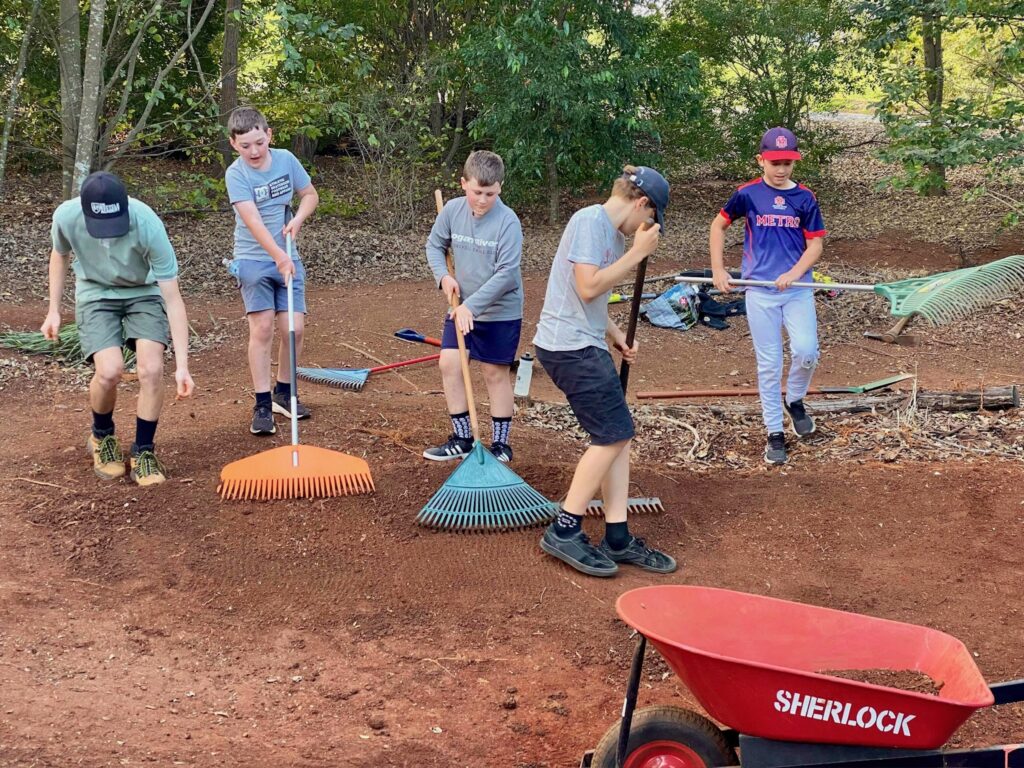
Thanks to the infectious enthusiasm of teachers Joel Davis, Patrick Galvin, Richard Smith, and Angus Harris, the BDC Mountain Biking Program has been building momentum since its inception. Since getting a handful of students to the 2022 Interschools event, BDC now boasts a program that has over one hundred students as alumni. The program has been so successful within the small community that they have a Shingleback trailer to get kids to the trailhead. And, according to Patrick, the program is still growing.
“Last year was massive,” he says. “So with the support of the BDC’s executive, we could get mountain biking on the timetable.”
That timetable sees students in Years 5 to 8 riding off-site at local trails, and this year, an on-site foundation skills program for Years 3/4 has been introduced.
Joel says the program is aimed at skill development and providing mountain biking to all students, as well as racing opportunities for those who want to compete, “that [competitive] avenue is there, but our programs are an open invitation to all students, including those who maybe wouldn’t ordinarily go out mountain biking.”
To that end, the school also hosts girls’ experience days, with 18 students, from Years 5 to 9, riding in the last event with teaching staff and local female mentors. While some parents’ feedback was that they were glad for the girls to experience something they wouldn’t normally do, Joel and Patrick hope the experience days and BDC’s program will boost girls’ participation in riding.
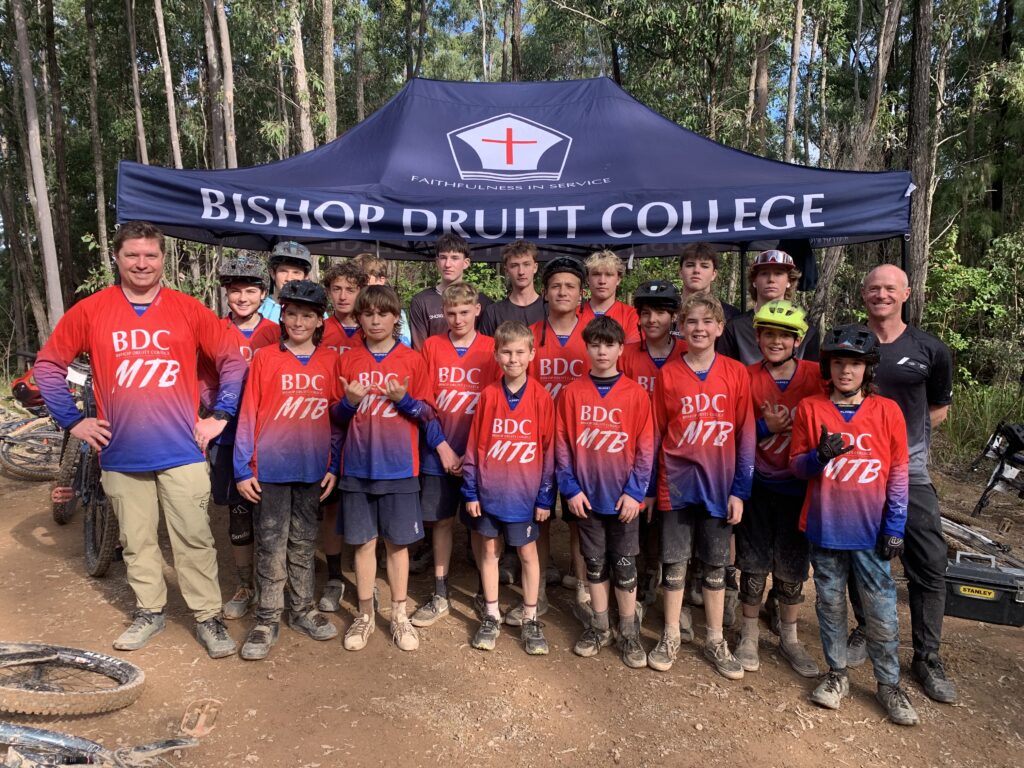
“In the first foundational program, two out of every 30 students were girls,” Joel explains. “Now it’s five in every 30, more than double.”
Joel and Patrick are clued into statistics showing girls drop out of sports in early adolescence. They hope building foundational skills and making the program visible will encourage girls to stick with the sport.
“Last year, there were two girls in the Year 5/6 group,” Joel clarifies. “This year, we have two women staff members who will hopefully be able to join the girls’ ride days and skills sessions.”
More than anything, the guys at BDC hope the program will help students foster a relationship with the natural world and build life skills.
“Some kids connect more with riding, being outside in nature, than with competition,” Patrick said, “so it’s about an experience they want to continue for the rest of their lives.”
Some kids connect more with riding, being outside in nature, than with competition, so it’s about an experience they want to continue for the rest of their lives.
While putting together the mountain bike program has been a passion project for Joel and his colleagues, and was well-supported by the school’s principal, it hasn’t come without its challenges. The perceived and absolute risk of mountain biking means they constantly assess safety.
“It’s an ongoing conversation with parents,” Patrick says. “Most understand the inherent risk [of the sport], but we ensure we signal risk very carefully.”
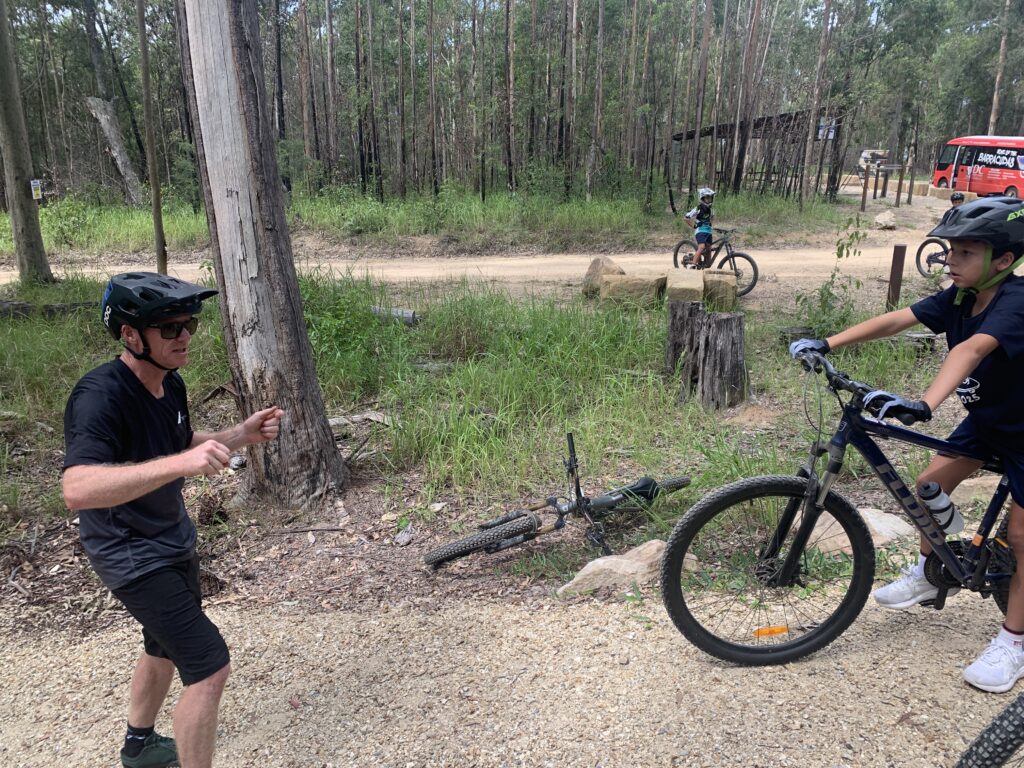
This means a bike check and warm-up before every session, ongoing risk and rider assessment, and conversations between staff about riders.
“We focus on slow and controlled speed skills in all programs,” explains Joel. “[Some] kids are not necessarily ready to start on blue trails, and we want to build confidence and safety.”
That means the staff are also aware of the limits of their certifications.
“There’s a good jump line locally, it’s pretty safe and well-built, but we have to say no to kids riding it because it’s not within our qualifications to take them there.”
The team at BDC have plenty of ideas for growing their program, and Joel flags building a gravity trail on campus in the future, to help students create and develop foundational skills without leaving school grounds. “We are lucky with the size and topography of the campus, and we are hoping that is something we can make happen to make our program even better for our students.”
Mountain Biking as a curriculum at Snowy Mountains Grammar School
In Jindabyne, Snowy Mountains Grammar School (SMGS) offers four different mountain bike programs for students in Kindergarten through Year 12. With access to trails locally, including Thredbo MTB, and further afield, including Narooma, Eden, and Tumbarumba, SMGS offers programs across a range of riding disciplines to cater to a variety of riders.
The Junior Riders Club, for students from kindergarten to Year 4, is an after-school program that focuses on bike skills, safety, rider confidence, trail etiquette, and environmental respect. Guided by a mix of school staff and local coaches, about 20 kids a week ride in these sessions, which aim to build fundamental skills in a nurturing environment for them to learn and play. Students doing the Duke of Edinburgh Award can also volunteer to assist with the program, supporting younger riders while developing their leadership skills.
Students from Years 5 to 11 can ride on sports days throughout the year (except Term 3, when the focus is snowsports), either cross-country or gravity riding. The cross-country program builds endurance and skills, including uphill riding techniques, cornering, and conquering trail features.
“Our cross-country program is about more than riding,” said SMGS Sports Academies Coordinator Jay Williams. “It’s about healthy lifestyle choices, personal fitness and connecting with nature.”
The gravity program heads to Thredbo MTB park to gain lift access to trails and build gravity riding skills and endurance.
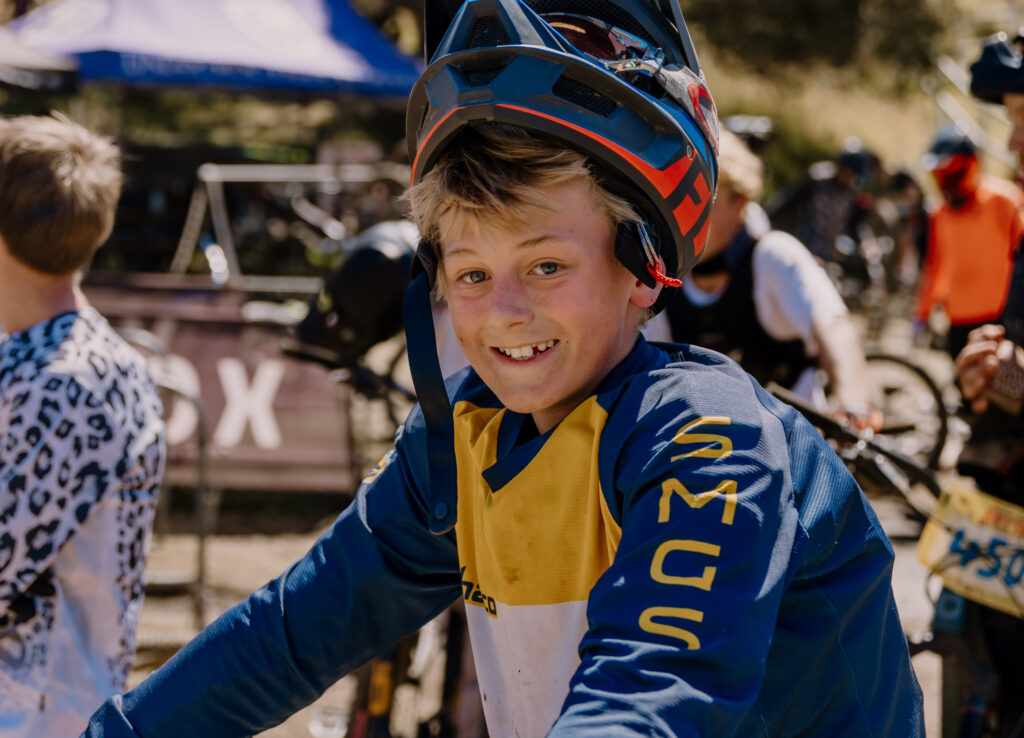
“The gravity program focuses on downhill, aiming to satisfy students looking to progress their skills without the pressure of competition,” Jay said.
The Mountain Bike Academy is the school’s ‘pinnacle’ program; students ride for a full day every week. In Term 1, the Academy focuses on downhill riding and training for Thredbo’s Cannonball Festival and Interschools events. In Terms 2 and 4, the program focuses more on enduro riding, with students riding the local trails and travelling to different trail networks.
“The Academy program is designed to help students set up professional pathways into the mountain biking industry,” Jay said. “Students have access to technical coaching, competition preparation, the school gym and academic tutoring, giving them the tools for success whether their dreams are in racing, coaching, or somewhere else in the industry.”
“Athletes ride for a full day each week with various handpicked coaches, competition support, transport and logistical aid, access to our school gym weights program and tutoring to maintain academic progress.”
Athletes ride for a full day each week with various handpicked coaches, competition support, transport and logistical aid, access to our school gym weights program and tutoring to maintain academic progress.
Though SMGS staff design, manage and oversee the program, the school also draws on professional coaches throughout the region. Coaches are sourced from Jindy Riders, Bike Betty, Sacred Ride and Thredbo, which helps students develop skills and make industry connections.
SMGS has also expanded from two to three bike trailers, boosting its transport capacity to more than 60 students at a time.
The Interschools is a big event on the SMGS school calendar. About 20% of students across the entire student cohort – not just those in the Academy program – compete in it.
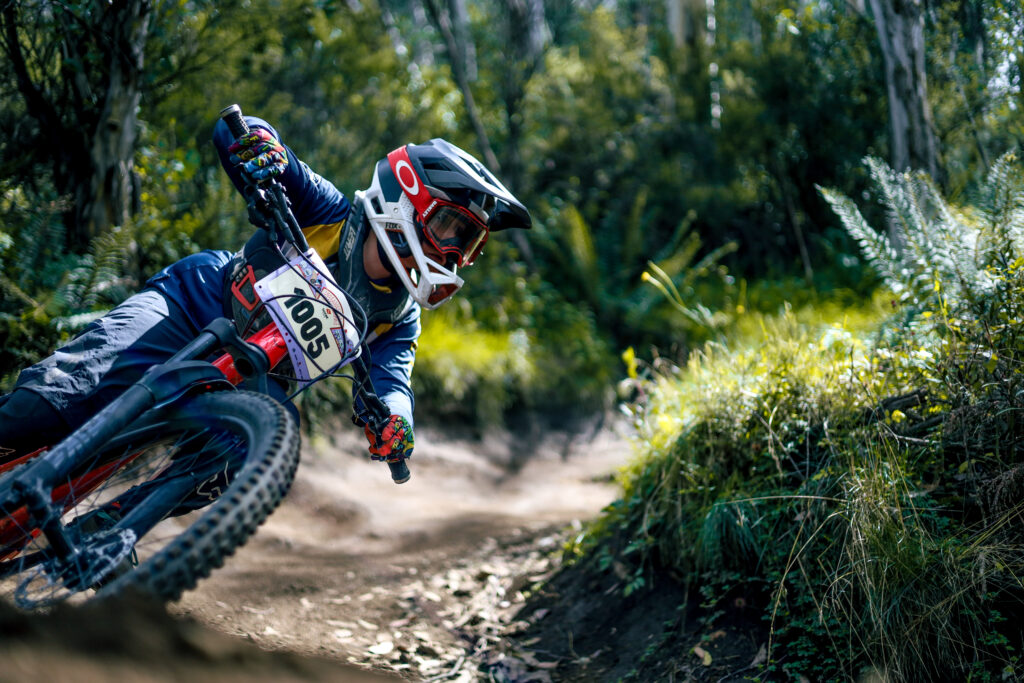
“It’s incredible to see riders who haven’t trained in our programs jump in and race,” Jay said, “that’s the school spirit we’re building.”
That spirit is evident in the event’s results, with SMGS winning the overall champion shield for the past three consecutive years.
“The students seem hungry to keep [the shield],” Jay said.
While female riders at SMGS are fewer in number than their male counterparts, they are making their presence known.
“We have a strong community of young female riders who contribute significantly to our overall points tally,” Jay said. “Their impact cannot be understated.”
Despite the adrenaline and aspirations within the Academy, Jay’s favourite program to ride with is the Junior Riders.
“The little tackers are full of energy and a sense of wonder, and our program is all about channeling that. It gets back to the grassroots of why we ride – for fun.”
If your memories of school sport are of hot afternoons running around dry ovals, being stuck in goals or the outfield or eye-watering days at the local pool for swimming carnivals, it’s hard not to be jealous of kids who get to ride bikes at school. If you’re interested in exploring options for mountain biking within your local school community, it all starts with a conversation. The schools involved here have all built their programs from the ground up, creating various models to fit the discrete needs of their schools. It is easy to see that with the rapid rise of mountain biking as a sport within the school environment, the future of mountain biking – at all levels – is looking good.

